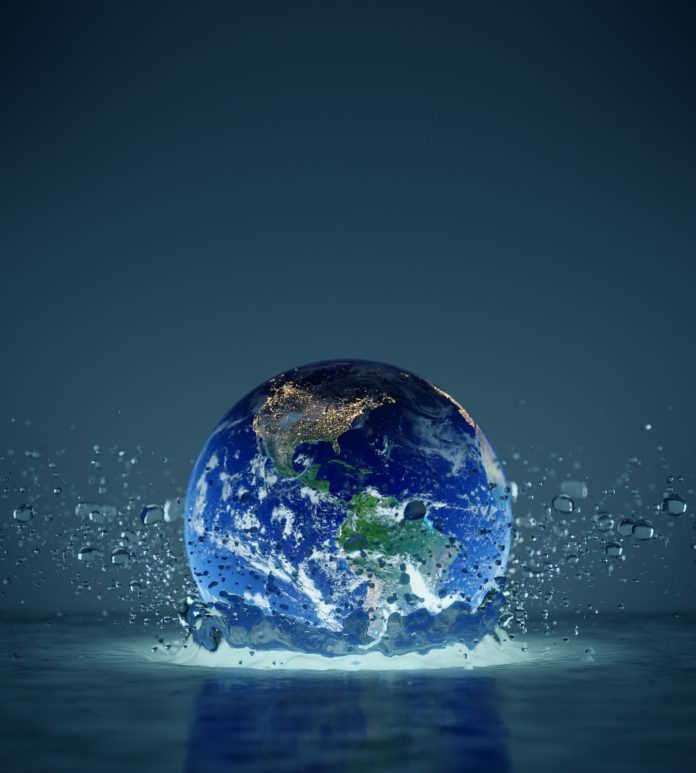Environmental and water sustainability are among the most pressing challenges of our time. Access to quality water in South Africa in particular has reached critical levels, with the recently published Blue Drop Report finding that almost half of the water in our drinking water systems is not safe for human consumption. The No Drop Report had similar findings with approximately 47% of municipal water classified as non-revenue water. While Government must act decisively to turn around this state of affairs, Higher Education Institutions also have a duty to harness all available resources to address this dire situation.
“The impacts of climate change, pollution, overexploitation and degradation of natural resources threaten the well-being of current and future generations. To address these issues, we need not only technological innovations, but also social and cultural transformations that foster a more sustainable and equitable world,” says Louise Wiseman, Managing Director at The Independent Institute of Education’s Varsity College, IIE MSA and Vega.
“Higher education institutions (HEIs) have a vital role and duty in ensuring environmental and water sustainability. They are the places where knowledge is created, disseminated and applied to solve real-world problems. They are also the places where future leaders, professionals and citizens are educated and empowered to take action for a better future.”
Wiseman says HEIs can contribute to environmental and water sustainability in various ways, such as:
- Developing and implementing sustainability policies and practices that reduce their environmental footprint and enhance their social responsibility.
- Integrating sustainability education into their curricula, pedagogies, and assessment methods. This can help students develop the competencies, attitudes and values that enable them to understand and address the complex and interrelated challenges of sustainability.
- Conducting and supporting research and innovation that advance the scientific and technological solutions for environmental and water sustainability.
- Fostering a culture of sustainability among their staff, students, and alumni. This can include raising awareness, providing incentives, organising events and campaigns, and facilitating dialogue and action on sustainability issues.
“In 2024, we really need to understand that it’s an all-hands-on-deck scenario to ensure a sustainable water future in South Africa. We as HEIs have the potential and the responsibility to be the leaders and the catalysts in this regard, by aligning our vision, mission and values with the principles and goals of sustainable development, to make a positive and lasting difference in our country.”
At IIE MSA, several initiatives have been put in motion to contribute to the building of knowledge and capacity to address water challenges in South Africa.
These include the offering of two water-related IIE postgraduate qualifications to address the demand for qualified water professionals: the Postgraduate Diploma in Water Management and the Masters in Integrated Water Management. These equip professionals with expertise and skills in different fields such as catchment management, water sensitive urban design and water and sanitation.
“The programmes take a holistic and interdisciplinary approach to managing water to equip students with a broad range of water related skills, from project management of water related infrastructure projects to the development of water related policy; from climate change and water quality management to environmental education. Our graduates are well rounded because our programmes incorporate training in soft skills as well as policy development and analysis,” explains Linda Downsborough, Programme Manager for Water and the Environment at the IIE MSA’s School of Engineering, Science and Health.
“Well-educated and trained graduates are essential for the effective management of the water system as a whole. This may be through the design, delivery, operation, and maintenance of water infrastructure. However, importantly, there is also a need for the holistic management of water resources such as managing water quality in our rivers and wetlands in South Africa,” she says.
IIE MSA academic and researcher Vanessa Stippel says the institution is also contributing to policy development, research, and innovation in the water industry.
“Higher education institutions are hubs for research and innovation. Researchers can work on developing new technologies, materials, and methodologies for water infrastructure construction, operation, and maintenance,” says Stippel.
“We are producing a diverse range of water-related qualifications that can ease the skills shortage, but unfortunately there remains a shortage of people taking up the qualifications to pursue careers in the water industry. We encourage those who are considering their future studies to consider a career in this vitally important field – a field which will ensure their life’s work amounts to more than just a job and an income, but a contribution to society that will last for generations to come.”












